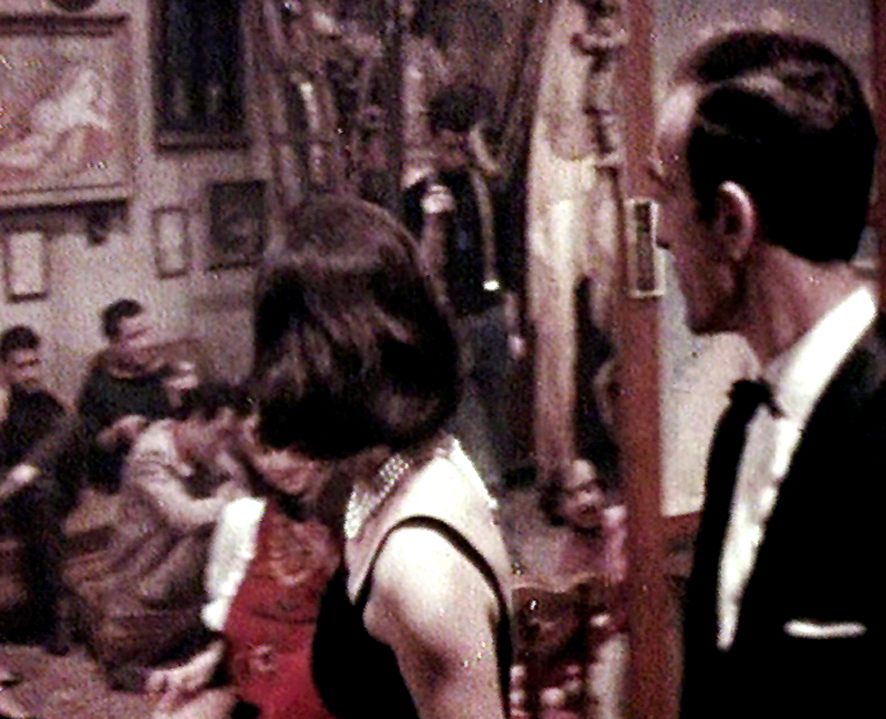- Closed Today
- Ticket
- Shop
- Membership
- TR EN
Clandesti: Invisible Catalan Cinema Under Franco June 24–27, 2010
İstanbul Modern Cinema presents a program that uncovers a hidden part of Spanish cinema. The featuring films, all Turkey premieres, focus on a generation of independent filmmakers whose innate unwillingness to conform with facist Franco’s regime forced them to produce, distribute, and exhibit radical films in Catalonia. Connected with workers' movements and political parties, these authors put their images in the service of anti-Franco causes, and even managed to organize a distribution network through cinema clubs, universities, social and cultural associations, and even parochial schools. Many of these films have no credits, in order to protect the identities of its participants. While this body of work represents a margin of Spanish film history, it nevertheless contains some of the most crucial, first-hand documents of the end of the dictatorship, revealing problems of housing and social services, immigration, the fate of political prisoners, and restrictions on expression and free speech. These filmmakers, members of the first generation who didn’t fight the Civil War, also chronicled the ongoing psychological, social, economic, and cultural effects of the regime. Forced to choose between exile and intellectual annihilation, they instead expressed themselves, putting their art in the service of a political movement that altered the course of Spanish history.
PROGRAM I: THE ONGOING POLITICAL STRUGGLE
PROTEST FEBRUARY 1/B 1976 (MANIFESTACIONS 1/B FEBRE)
Anonymous | 1976 | 13'
Raw, incredibly immediate images of the 1975 protests in favor of amnesty lor political prisoners create a rare document of the popular nature of civil revolt. These anonymously authored images are juxtaposed with comments culled from police radio messages.
MOUNTAIN (MUNTANYA)
Anonymous | 1970 | 10'
A chronicle of the sit-in protest by a group of artists and intellectuals in the Monastery of Montserrat against the 1970 trial of ETA militants who were sentenced to death .
EL SOPAR
Pere Portabella | 1974 | 50'
In 1974, on the night that militani anarchist Salvador Puig Antich was executed, live former political prisoners gather in a farmhouse to prepare a meal and appear in a movie on the problems and issues arising from long prison sentences. A pillar of Spanish independent cinema, veteran avant-garde artist Portabella surprises with this highly intimate and moving political classic.
PROGRAM II: MORALITY AND SOCIETY
HAPPY PARALLEL (EL ALEGRE PARALELO)
Josep Maria Ramon, Enrique Ripoll-Freixes | 1964 | 32'
A revealing look at El Paralelo, a notorious Barcelona neighborhood known even during the Franco era for prostitution and torrid nightlife.
FAR FROM THE TREES (LEJOS DE LOS ARHOLES)
Jacinto Esteva-Grew | 1963-70 | 103'
One of the landmarks of '60s Spanish cinema, the film updates Bunuel's classic Land Without Bread (1932) by focusing on the perversity of popular traditions involving pain and death. Shot on weekends over seven years, the film was a conscious protest against the then-fashionable image of Spain promoted by the regime of a rapidly modernizing nation.
PROGRAM III: COUNTRYSIDE AND THE CITY: THE STRUGGLE TO MAKE A LIVING
52 SUNDAYS (52 DOMINGOS)
Llorenç Soler | 1966 | 29'
One of the finest works on the world of Spanish bullfighting, 52 Sundays chronicles the misadventures of a group of young men trying to become toreros. Soler captures the hopes and dreams of a social class fearing it has fewer options to get by.
LONG JOURNEY TO THE RAGE (LARGO VIAJE HACIA LA IRA)
Llorenç Soler | 1969 | 26'
The underside of the Spanish miracle: Crowds of men and women, leaving the countryside, entrust their fates to the city.
FIELD FOR MEN (EL CAMPO PARA EL HOMBRE)
Collektive Film Class (Helena Lumbreras, Maria Lisa) | 1973 |49'
A key work by the only female directors active in the clandestine cinema movement, Field for Men explores rural poverty by highlighting two very different regions, Galicia and Andalucia.
PROGRAM IV: AESTHETIC SUBVERSION: ANARCHY AND ABSURDITY
LOCK OUT
Antoni Padros | 1973 | 127'
Only recently restored, Lock Dut creates a nightmarish, allegorical world peopled by politically and sexually unsatisfied characters that hover between lethargy and revolution. One of the most fascinating personalities in Spanish avant-garde cinema, Padros worked as a bank clerk by day while creating this desperate cry for freedom secretly at night. Antoni Padros will be with us for this rare screening of his film.
PROGRAM V: OVER THE EDGE: THE AESTHETICS OF OUTRAGE
...AND THEN NONE WILL LAUGH (...I DESPRES NINGU NO RIURII)
Manel Esteban | 1968 | 16'
Esteban captures the spirit of revolt that spread throughout the world in 1968 by taking his critique beyond the regime to a more acidic rendering of Spain's Catholic, bourgeois culture.
SEXPERIENCE (SEXPERIENCIAS)
Jose Marfa Nunes | 1968 | 94'
A charter member of the avant-garde Barcelona School, Nunes charts the reactions of an elderly man and a young girl to the international groundswell of protests that characterized the late '60s. The film features an extraordinarily complex soundtrack that alternates asynchronous sequences with seemingly random sounds of waves, lootsteps, and cars.
